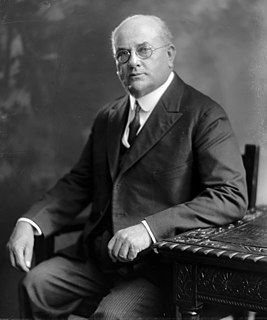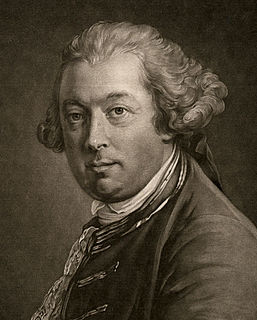The Waldo Patent, a letters patent also known as the Muscongus Patent or the Lincolnshire Patent, was a document granting title to 36 square miles (9,300 ha) of land in what is now the U.S. state of Maine. It is named variously for businessman Samuel Waldo, who eventually gained control of the patent, and for the Muscongus River, one of the grant's boundaries.

Thomas Jordan Jarvis was the 44th Governor of the U.S. state of North Carolina from 1879 to 1885. Jarvis later served as a U.S. Senator from 1894 to 1895, and helped establish East Carolina Teachers Training School, now known as East Carolina University, in 1907.

James Lowry Robinson was a Democratic politician from the U.S. state of North Carolina; he served as the fourth lieutenant governor of the state for four years under Governor Thomas J. Jarvis and as acting Governor of North Carolina for one month in 1883.
The Guam Organic Act of 1950, is a United States federal law that redesignated the island of Guam as an unincorporated territory of the United States, established executive, legislative, and judicial branches, and transferred federal jurisdiction from the United States Navy to the Department of the Interior. For the first time in over three hundred years of foreign colonization, the people of Guam had some measure of self-governance, however limited.

The Lieutenant Governor of New Jersey is an elected constitutional officer in the executive branch of the state government of New Jersey in the United States. The lieutenant governor is the second highest-ranking official in the state government and is elected concurrently on a ticket with the governor for a four-year term. Because the position itself does not carry any powers or duties other than to be next in the order of succession, the state constitution requires that the lieutenant governor be appointed to serve as the head of a cabinet-level department or administrative agency within the governor's administration.
Spencer Phips was a British politician in the Province of Massachusetts Bay. Born Spencer Bennett, he was adopted by Massachusetts Governor Sir William Phips, his uncle by marriage, whose name he legally took. Phips served for many years in the provincial assembly, and on the governor's council, before receiving an appointment as lieutenant governor in 1732, a post he held until his death. He was twice formally acting governor.
John Reading was the first native-born governor of the British Province of New Jersey, serving in 1747, and again from September 1757 to June 1758. His father, Colonel John Reading, was the first major landowner in Hunterdon County.

The 1922 South Carolina gubernatorial election was held on November 7, 1922, to select the governor of the state of South Carolina. Thomas Gordon McLeod won the Democratic primary and ran unopposed in the general election becoming the 95th governor of South Carolina.

Thomas Gordon McLeod was the 95th Governor of South Carolina from 1923 to 1927.

The 1924 South Carolina gubernatorial election was held on November 4, 1924 to select the governor of the state of South Carolina. Governor Thomas Gordon McLeod won the Democratic primary and ran unopposed in the general election being reelected for a second two-year term.

The 1872 South Carolina gubernatorial election was held on October 16, 1872 to select the governor of the state of South Carolina. Franklin J. Moses, Jr. won the election as a Radical Republican against the more moderate faction of the Republican Party and became the 75th governor of South Carolina.

Cape Jellison is a 1,600-acre (6.5 km2) peninsula that juts into Penobscot Bay on the coast of Maine. In colonial times it was known as Wasaumkeag Point. It is part of the town of Stockton Springs, between Searsport and Bucksport, in the upper mid-coast region of the state. It was the site of the first port facility built by the Bangor and Aroostook Railroad.

Fort Pownall was a British fortification built during the French and Indian War, whose remains are located at Fort Point State Park in Stockton Springs, Maine. The fort was named for Governor Thomas Pownall, who oversaw its construction. It never saw action, and was destroyed during the American Revolutionary War by the actions of both colonists and the British military to prevent its further use. The fort's remains were listed on the National Register of Historic Places in 1969.

Samuel Waldo was a wealthy merchant, land speculator, soldier and political figure in the Province of Massachusetts Bay.

Charles Alan Pownall was a Vice admiral in the United States Navy and Governor of Guam. He was the third military Governor and first naval Governor of Guam following the United States recapture of the island from the Japanese. After conflict with the Guam Congress in 1948, Pownall replaced many Congressmen with his own appointments, whom the Guamanians refused to recognize. The ensuing protest persuaded President Truman to transfer control of the island away from the Navy. As a consequence, Charles Pownall was the last military governor of Guam.
Lieutenant General Charles Churchill was a British Army General and a Member of Parliament.

Fort Point State Park is a public recreation area with historic features that overlooks Penobscot Bay from the easternmost tip of Cape Jellison in the town of Stockton Springs, Maine. The state park's 156 acres (63 ha) feature the Fort Point Light and the site of historic Fort Pownall. The park offers hiking trails, picnicking, and fishing.

The 1876 United States presidential election in North Carolina took place on November 7, 1876, as part of the 1876 United States presidential election. North Carolina voters chose ten representatives, or electors, to the Electoral College, who voted for president and vice president.











